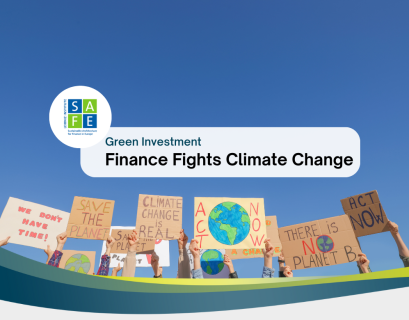The commercial investment volume exceeded the long-term average in the first half of the year. What is the mood in the second half of 2022?

Riza Demirci, Managing Director and Frankfurt Branch Manager at BNP Paribas Real Estate
Indeed, we were able to record an extraordinarily strong result on the Frankfurt investment market in the first half of the year with €3.39 billion in transaction volume. This exceeded the long-term average by more than a third, and at the same time it was the third-best interim result ever recorded. However, the overall very good performance is primarily due to the outstanding start to the year with € 2.5 billion in volume placed in the first quarter. After the outbreak of the war against Ukraine, a clear wait-and-see attitude on the part of investors could be discerned in the spring months. In the slipstream of the geopolitical upheavals, the severely gloomy economic outlook and the interest rate turnaround announced by the ECB, the investment volume fell to € 880 million in the second quarter. It was thus clearly below average.
What does this mean exactly?
The slowdown in transaction dynamics was a reaction of the markets that could be observed nationwide, which is generally very typical for market turnaround phases. We also like to use the term “pricing phase” here. While sellers’ expectations were still anchored at the very high level of the beginning of 2022, investors had to calculate with rapidly changing financing conditions. Accordingly, the price expectations were far apart in the second quarter. In this price-finding phase, which in our experience can often last six to nine months, sellers and buyers have to agree on a new price level that works for both sides. The return of certainty in decision-making has an accelerating effect on this process. We currently have to conclude that this certainty is returning only very slowly, which is not surprising in view of the major challenges facing the German economy this winter. Accordingly, the market presented itself in the third quarter at a comparatively low but pleasingly stable level. A total of € 905 million was placed in the market area, resulting in an investment volume of € 4.3 billion for the current year at the end of September.
What is the long-term outlook?
In view of the recession looming over the economy as a whole, the otherwise typical year-end rally is hardly to be expected in 2022. Returns compression is likely to continue for the time being, with greater differentiation by location and asset class becoming apparent. Only when the market has regained more certainty with regard to the further development of interest rates, economic growth and, not least, the further geopolitical situation, should investment activity accelerate significantly again and then move to a new price level. But this can also happen very quickly, because the fundamental data on the Frankfurt property market are good. The city and its surrounding area offer a very high quality of life, the economic power of the metropolitan region is outstanding and Frankfurt radiates into the world as a financial centre. The long-term prospects are very good, also supported by healthy user markets.
When you think of Frankfurt, the image of the skyline with its numerous offices comes to mind. To what extent do New Work and home office stand out in your figures?
The effects of New Work and home office cannot yet be measured in figures; it is not yet possible to assess what the ratio of presence and home office will be “after Corona” and whether office users will need less space in the future. The only thing that is certain at the moment is that it will no longer be the same as before – in other words, there will no longer be a one hundred percent office presence. Home offices will also be used more after the pandemic. Projects are currently in progress in various companies to find out what the effects will be. But the office will certainly not become irrelevant. Companies want to bring employees back to the office – but this cannot be forced. So they have to design the workplaces in such a way that they offer attractive incentives to come back to the office. In addition, new working environments with quiet areas and retreat possibilities require more space than before.
We find that offices in prime locations and in modern new buildings continue to be in particularly high demand and will remain so. This is also due to the shortage of skilled workers: sought-after workers are attracted to the attractive locations and to offices with interesting layouts with a mix of individual offices and shared spaces. This is supported by the increase in top rents and the fact that some companies are currently strengthening their locations in the city centres.
At the end of the third quarter we can also state that the Frankfurt office market has continued its upward trend of the first half of the year and that in the third quarter alone around 120,000 m² of office space was newly rented. After the first nine months, take-up in the entire Frankfurt market area thus totals 362,000 m², of which 304,000 m² is accounted for by the more narrowly defined gif area. This exceeds the long-term average by just under 1%. Compared to the previous year, the increase in take-up was 10 %. A direct quarterly comparison also shows a clear plus of 14 %. We assume that the increased market dynamics do not only reflect Corona catch-up effects, but also long-term confidence in the office as a central place of work as well as in the economic power of the Main metropolis.
Frankfurt Main Finance has set out in its 10-point plan to develop the location into one of the leading centres for sustainable finance. To what extent do investors focus on sustainability and ESG aspects in real estate investments?
There is no longer a project where ESG requirements are not met. The same picture can be seen in the building stock, and on the user side there are no major lettings without the criteria being met. Sustainability and ESG have therefore arrived one hundred percent in the office property market.
How has the vacancy rate developed in Frankfurt since the Brexit decision in the UK in 2016 and what do you expect for the future in this regard?
From 2016 to 2019, the Frankfurt office market recorded record results in terms of take-up, which has steadily reduced the vacancy rate. With Corona, this has changed abruptly: Companies are unsettled and space turnover fell sharply. At the same time, as space continued to be under construction, the vacancy rate increased significantly. The vacancy rate for the market as a whole is 8.6%, in the Westend and the banking district only 5.2% and 4.4% respectively.
What would be the title of your 2022 annual review of the Frankfurt real estate market if you had to write it now?
The annual review would bear the headline “Sustainability is above all”. In office letting, price increases due to sustainability requirements or ESG, increased energy and material costs, a shortage of skilled workers in construction as well as uncertainties due to interest rate increases and the Ukraine war dominate. Construction has thus become more complicated than ever.
As far as the investment market is concerned, we can state that investors in the Frankfurt market have also acted much more carefully after the outbreak of the war against Ukraine, driven above all by the changed financing environment, the significant increase in financing costs and the gloomy overall economic outlook. At the same time, they have impressively demonstrated their confidence and belief in Frankfurt as a location, in some cases with large-volume transactions such as the Marienturm. They do not only have an eye on the short-term development, but also on the long-term perspectives and opportunities. And this is where Frankfurt clearly scores as an international business and financial metropolis with functioning tenant markets in all asset classes and extensive growth potential. We will certainly see a new and increasingly differentiated level of pricing according to location and construction quality. Last but not least, ESG will also be a component in pricing that should not be underestimated.
Person
As branch manager, Riza Demirci is responsible for the Transaction division at the Frankfurt office and continues to drive the expansion of the division in the economically strong Rhine-Main region. Together with a team of 60, he is responsible for the letting and sale of office, industrial, logistics and retail properties. The Project Solutions team at the Frankfurt location is responsible for optimising and expanding space.
Most important stations: Since 2009, Riza Demirci was Director Office Advisory in Frankfurt at BNP Paribas Real Estate, from 2015 to 2021 Head of National Office Advisory, since 2015 Managing Director and since 2021 Regional Director Frankfurt with around 70 employees.
References:
- Deutsche Bahn “Silberturm” in Frankfurt, 72,000 m² office space
- HQ Thales in Ditzingen (Stuttgart region), 72,000 m² office space
- Allianz Global Investors in Frankfurt, 30,000 m² office space
- IBM German headquarters in Ehningen (Stuttgart region), 50,000 m² office space
BNP Paribas Real Estate
BNP Paribas Real Estate is a leading German and international real estate services provider offering its clients comprehensive services in all phases of the real estate cycle. The company is present in 30 countries (Europe, Middle East and Asia) and delivers local service with 4,500 employees at its own locations and with alliance partners. In Germany, BNP Paribas Real Estate employs 830 people at 11 locations and is active in the Transaction, Consulting, Valuation, Property Management, Investment Management and Property Development divisions. The company is part of the BNP Paribas Group, a leading global financial services provider.
Why are we involved with Frankfurt Main Finance?
The initiative offers us as a real estate service provider an ideal networking platform to get in touch with all relevant players of the financial centre Frankfurt from politics, institutions and business and to exchange ideas. At Frankfurt Main Finance we can discuss current developments concerning the leading financial centre in Germany and the Eurozone and stay in dialogue and support each other.
This is an automated translation of the original German interview.
Cover photo: Unsplash





